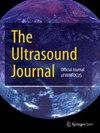Student ultrasound education, current view and controversies. Role of Artificial Intelligence, Virtual Reality and telemedicine.
IF 2.9
Q2 Medicine
引用次数: 0
Abstract
The digitization of medicine will play an increasingly significant role in future years. In particular, telemedicine, Virtual Reality (VR) and innovative Artificial Intelligence (AI) systems offer tremendous potential in imaging diagnostics and are expected to shape ultrasound diagnostics and teaching significantly. However, it is crucial to consider the advantages and disadvantages of employing these new technologies and how best to teach and manage their use. This paper provides an overview of telemedicine, VR and AI in student ultrasound education, presenting current perspectives and controversies.
学生超声波教育、当前观点和争议。人工智能、虚拟现实和远程医疗的作用。
未来几年,医学数字化将发挥越来越重要的作用。尤其是远程医疗、虚拟现实(VR)和创新的人工智能(AI)系统为影像诊断提供了巨大的潜力,预计将对超声诊断和教学产生重大影响。然而,考虑采用这些新技术的利弊以及如何最好地教授和管理其使用至关重要。本文概述了远程医疗、VR 和人工智能在学生超声教学中的应用,介绍了当前的观点和争议。
本文章由计算机程序翻译,如有差异,请以英文原文为准。
求助全文
约1分钟内获得全文
求助全文
来源期刊

Ultrasound Journal
Health Professions-Radiological and Ultrasound Technology
CiteScore
6.80
自引率
2.90%
发文量
45
审稿时长
22 weeks
 求助内容:
求助内容: 应助结果提醒方式:
应助结果提醒方式:


